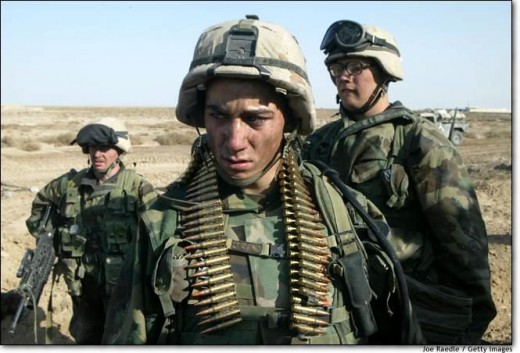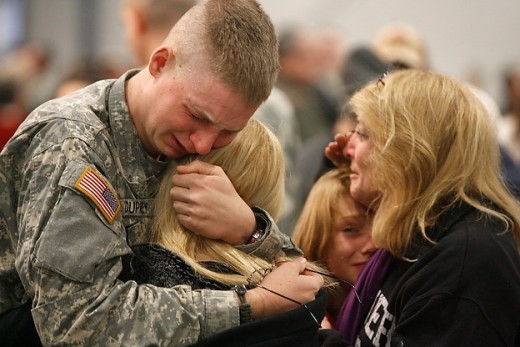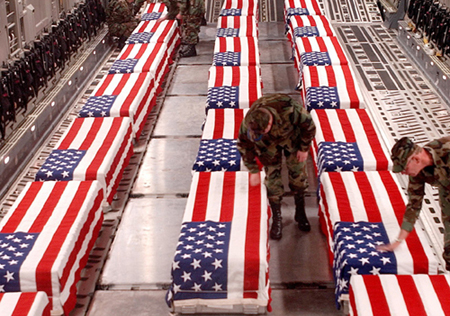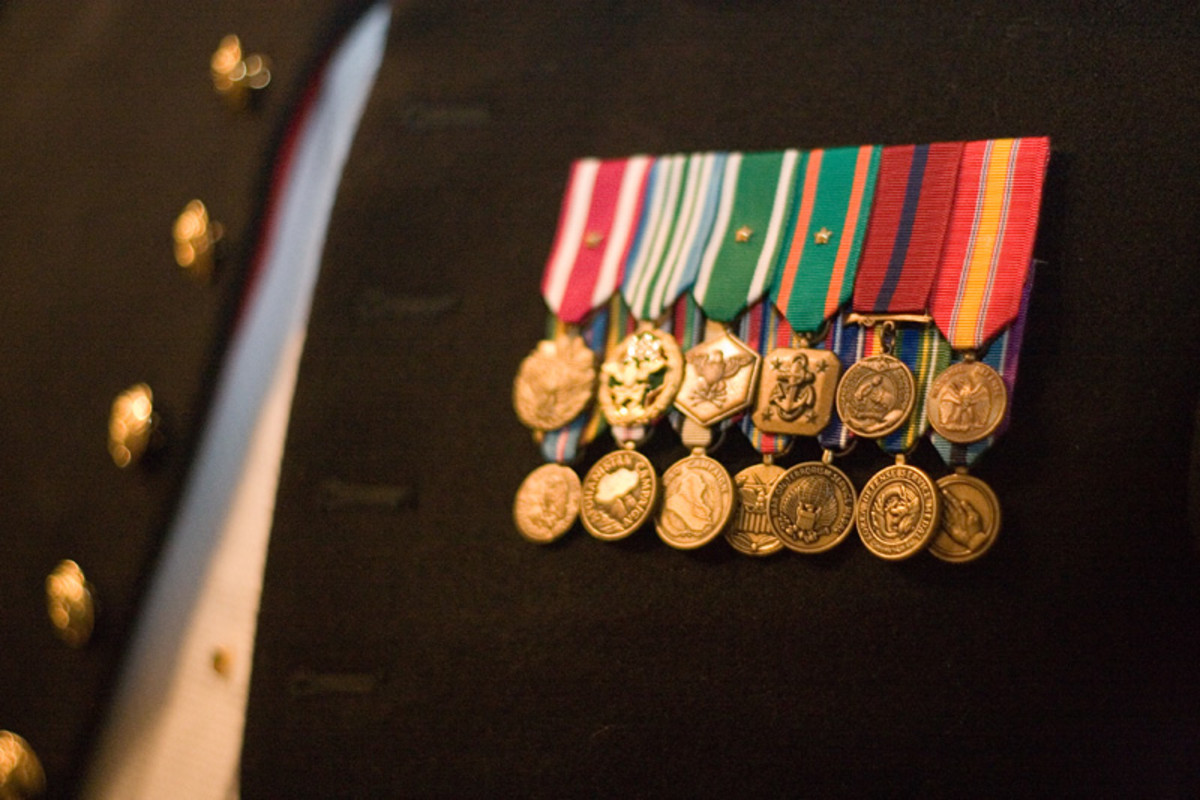Suicide In The Military: What's Killing Off Our Troops
In 2010, 830 American soldiers were killed. That's a sad enough statistic, but what makes it even more sad is of that 830, 468 died at their own hand. That's right...468 American soldiers ended their own lives by suicide. That was an increase from 381 in 2009...almost 100 more. In 2008, less than 90 soldiers committed suicide. In the Marines alone in 2007, the number of suicides doubled from 2006. Each year since 2003, the number has increased. What's the reason for this growing trend? And more importantly, what can be done about it?
You would think that the continued and repeated deployment of American soldiers would be the most likely reason for this alarming tend, but there's much more to the problem than that. Certainly the lengthy and repeated deployments factor into the equation, but not as much as you would think. As a matter of fact, the bulk of soldiers committing suicide are ones who have never even left American soil or who are on their first deployment.

Why Do People Take Their Own Lives?
The military has been taking a long hard look at the issue of suicide in the ranks for quite a while now. The Army commissioned a 15-month study beginning in 2009 to determine what the risk factors were and what they could do to prevent it. A report was released in July 2010 pointing toward several factors, but awareness and availability of treatment being key to helping soldiers with mental issues. The issues many of these soldiers had were recurring ones, but somehow they seemed to fall through the cracks before they could get help.
Soldiers who committed suicide generally killed themselves for the same reasons other people in the civilan population kill themselves, but will the complications of living the military lifestyle to compound the issue. The common threads are alcohol and drug abuse, marital discord, and financial problems. Throw a couple of separations from family on top of that and a deployment or two and you have a recipe for disaster.

Seeking Help
It hasn't always been the position of the military to accept that soldiers may have mental issues associated with combat or everyday life, but they have changed their stance in recent years. The continued involvement of American soldiers in Iraq and Afghanistan has increased the military's focus on taking care of soldiers and their families. Every soldier and civilian employee now has to go through annual suicide prevention training, alerting them to the signs of potential suicide and the resources available for them if they feel they need help. This is a big step for the military who has long had the stance that if you had any kind of issue, they didn't need you. Many soldiers over the years have avoiding seeking treatment, because they have been afraid it would "hurt their career."

The Real Issue With Preventing Suicide
Just like in the civilian sector, soldiers need to know that there are channels available to them should they start having issues and that there will be no repercussions if they seek help for their problems. Over half of American soldiers who committed suicide had never been deployed, so pointing to Post Traumatic Stress Disorder in all cases is not the answer. The real issue in preventing suicide within the military as well as in the civilian sector is teaching people to bounce back from diversity. Too many people in today's society treat every situation as if it were the end of the world and that there is no recourse, but to end their lives, rather than seek solutions. From the mental health studies the military has conducted, they do realize that resiliency is key in helping soldiers to cope and have set up resiliency centers for soldiers and their families as a means to increase their coping skills. Hopefully. as commanders become more aware and sensitive to mental health issues, soldiers become more resilient, and mental health treatment becomes destigmatized, military suicides will decrease.

Signs That A Person May Be Contemplating Suicide
There are several signs that a person may be considering taking their own life:
- Not taking care of personal appearance, changes in appearance or personality
- Talking about suicide
- Previous attempts at suicide
- A triggering event, such as a divorce, demotion, or death in the family
- Risky behaviors
- Increased use of alcohol
- Getting "affairs in order", such as giving away personal items, making a will, etc.
- Constantly talking about death
If you know a soldier or anyone who has these symptoms, get them to a mental health professional immediately! The number for the National Suicide Hotline is 1-800-784-2433.

- Guard, Reserve suicide rate sees big spike - Army News | News from Afghanistan & Iraq - Army Tim
Army officials continue to struggle to figure out why soldiers especially the services citizen soldiers keep committing suicide in record numbers, as 2010 was the sixth consecutive year the Armys suicide rate increased. - Army suicide prevention efforts raising privacy concerns - USATODAY.com
An Army effort to reduce suicides by sharing more of soldiers' personal therapy information with squad, platoon or company leaders even in cases where there is no threat of self-harm is pushing the limit of privacy laws, say civilian experts on... - Suicide in the military - Stripes
- Army reports record number of suicides for June - USATODAY.com
Soldiers killed themselves at the rate of one per day in June, making it the worst month on record for Army suicides, the service said Thursday. - Suicide claims more US military lives than Afghan war
While a final figure is not available, the toll of military suicides last year is the worst since records began to be kept in 1980.








